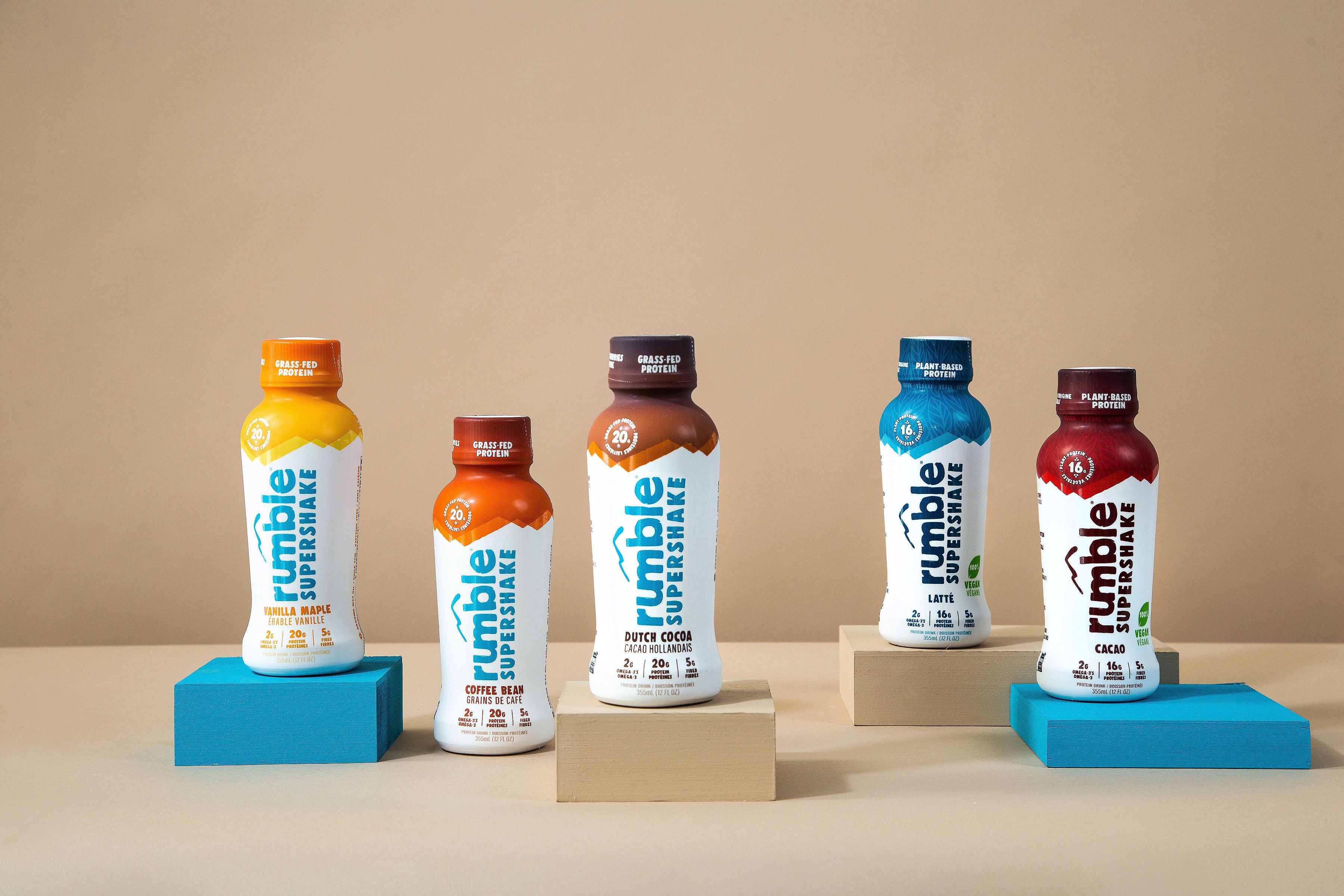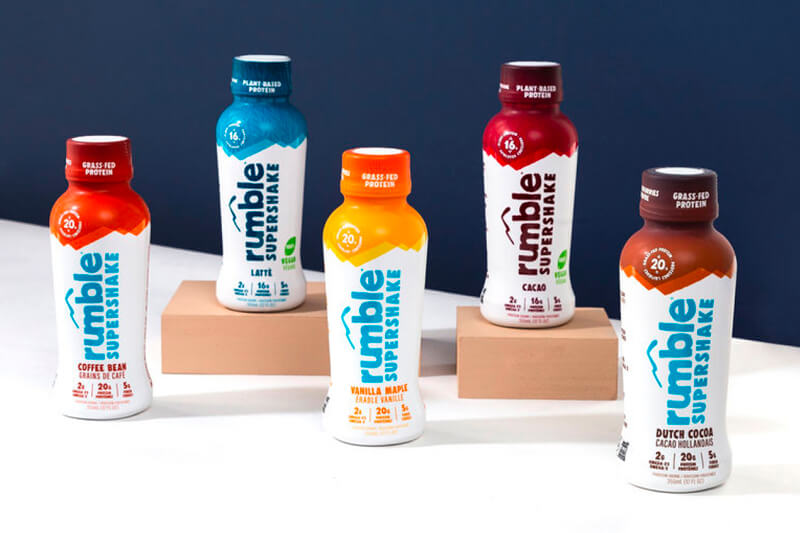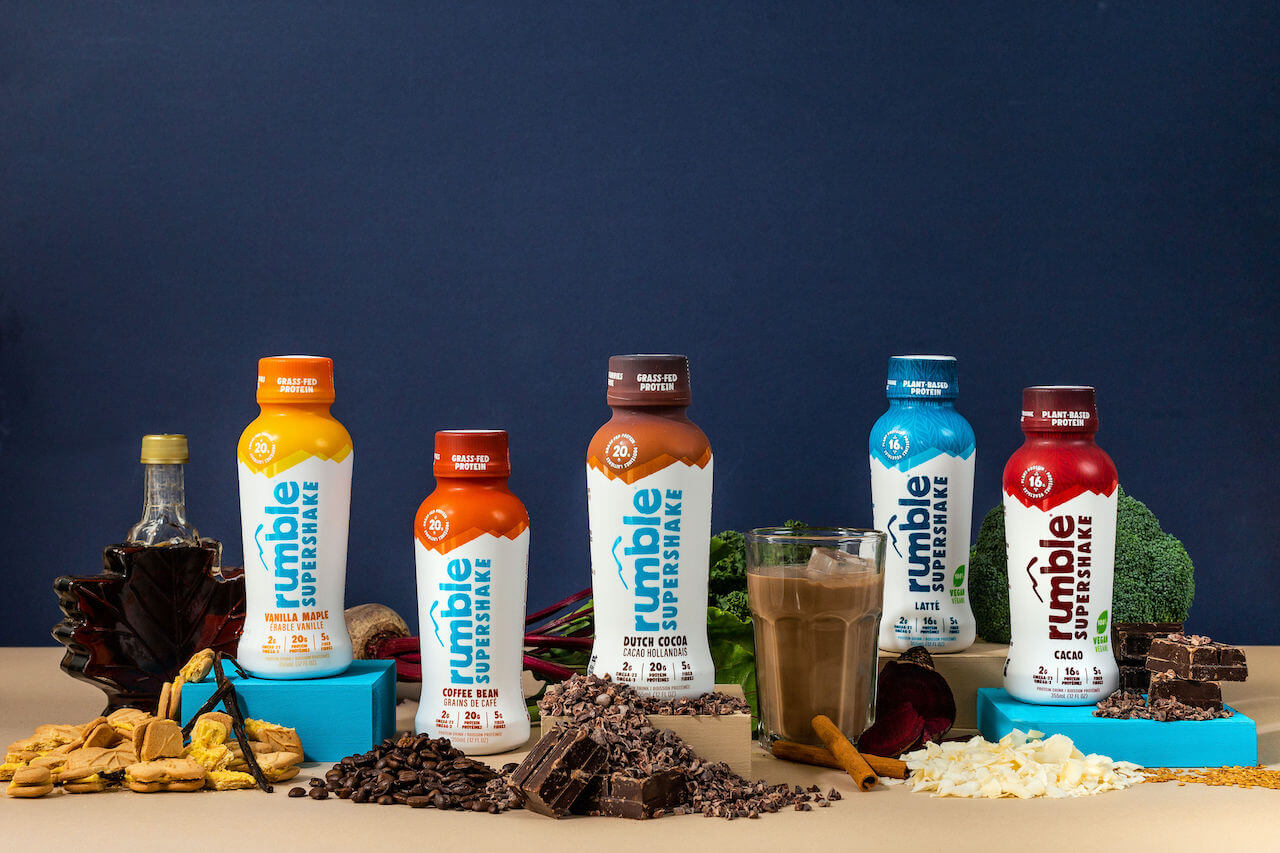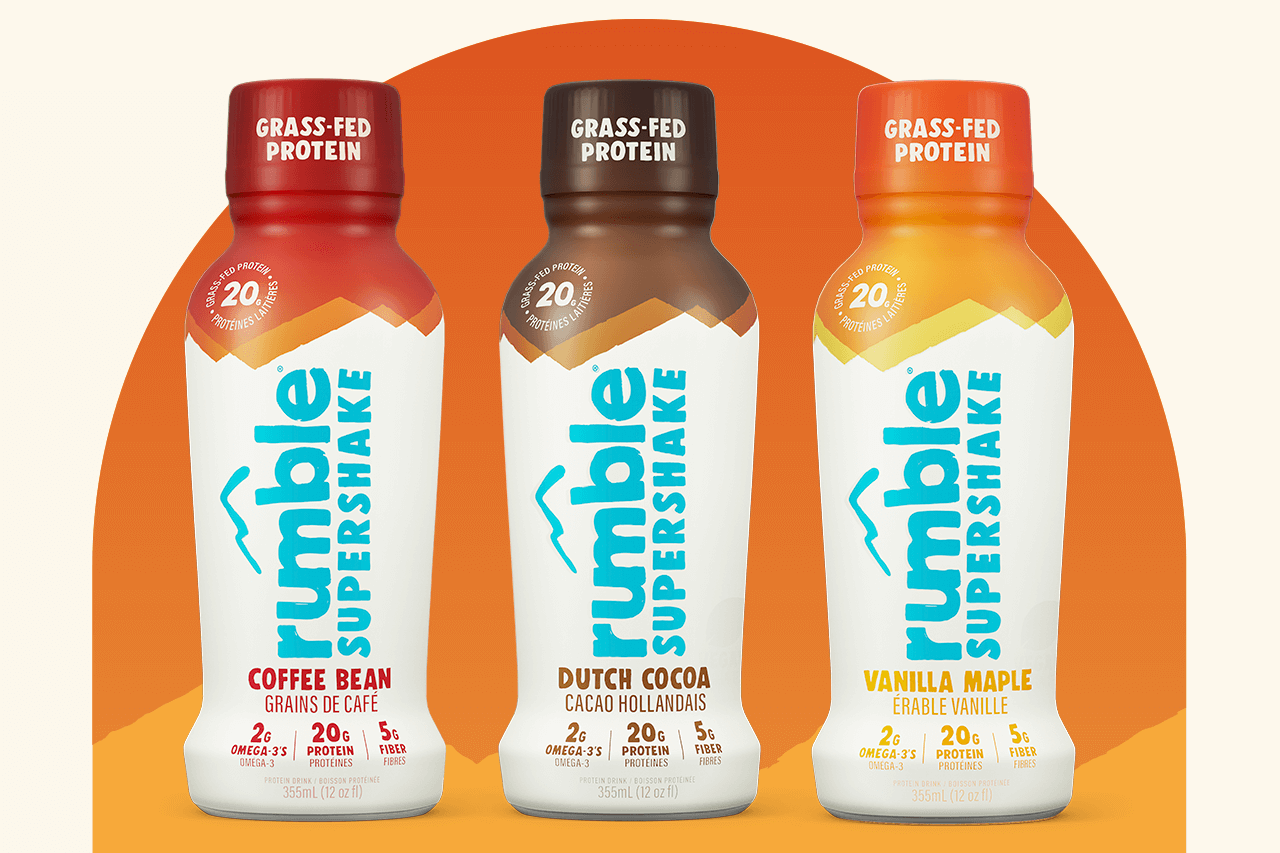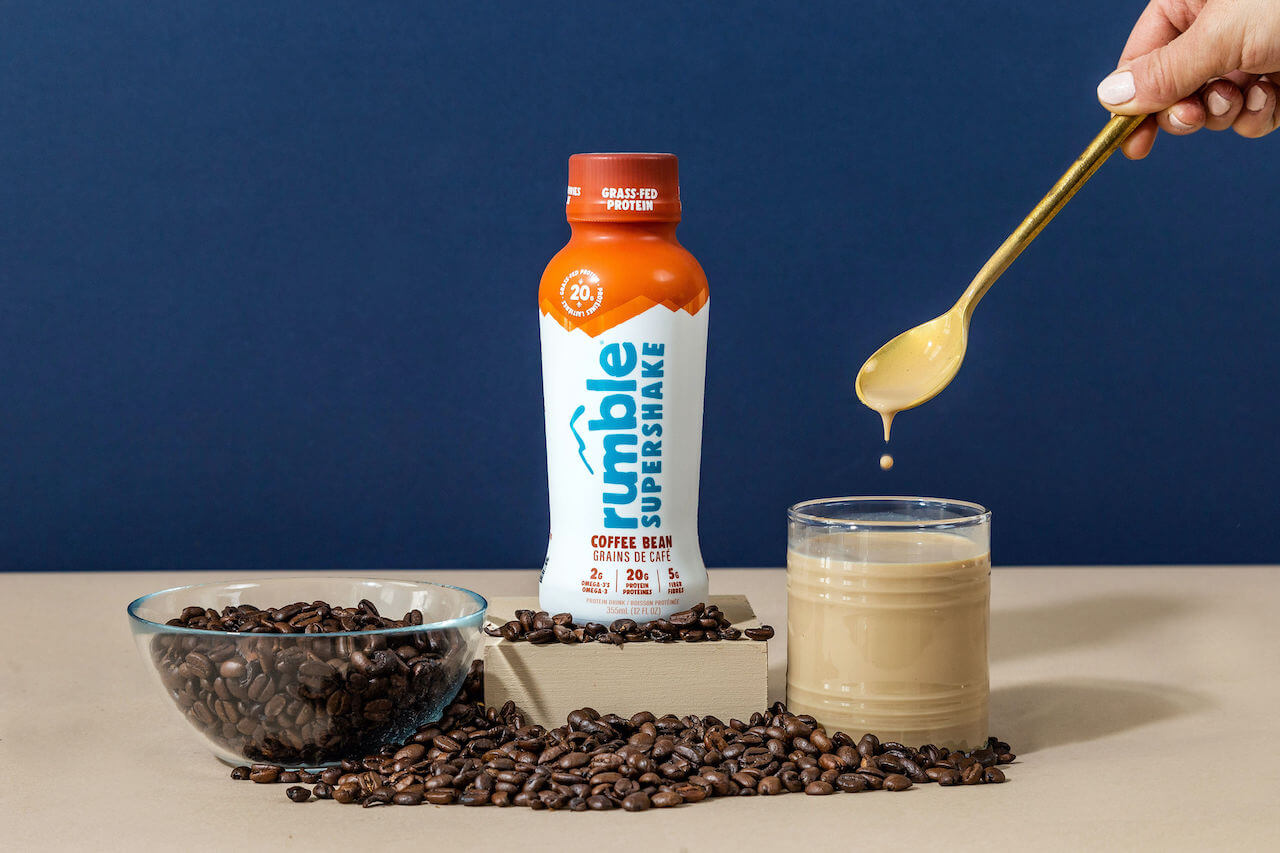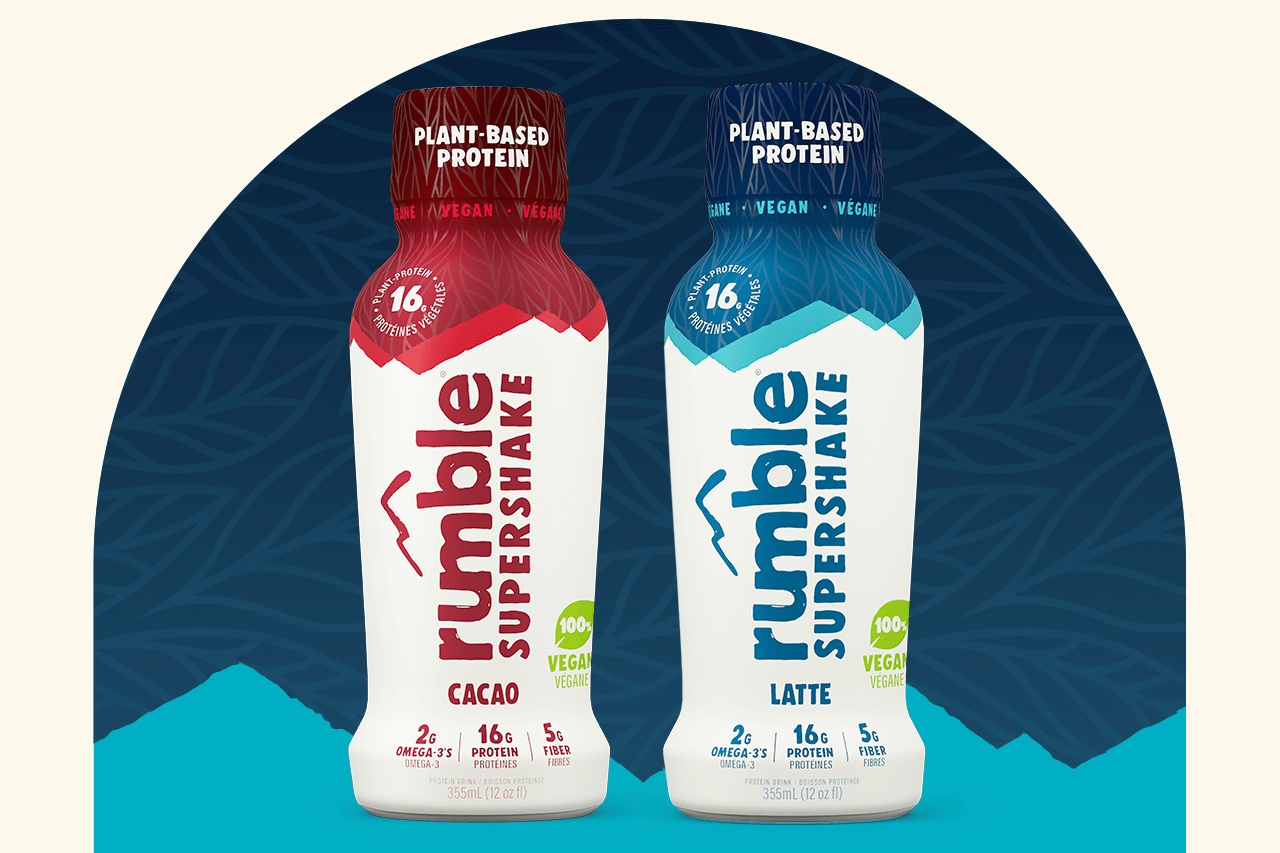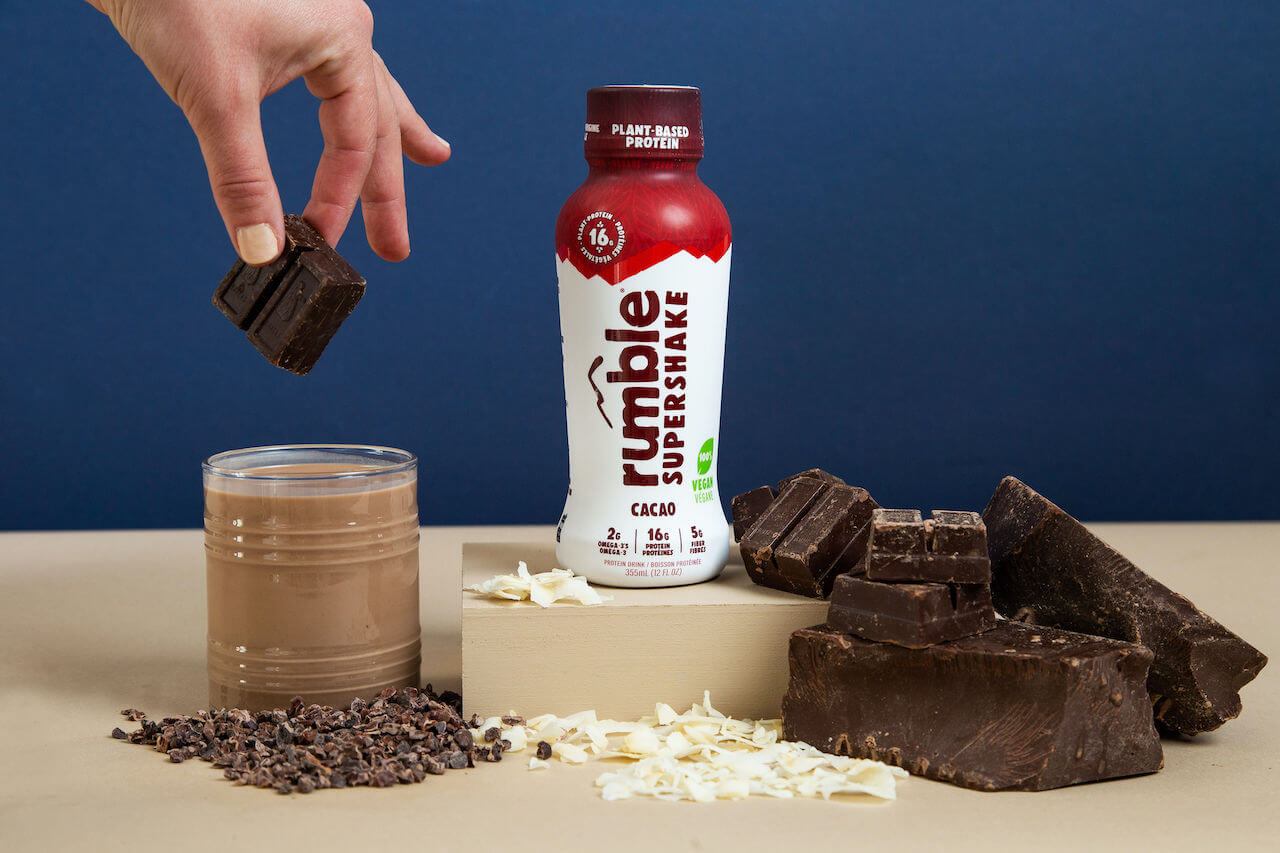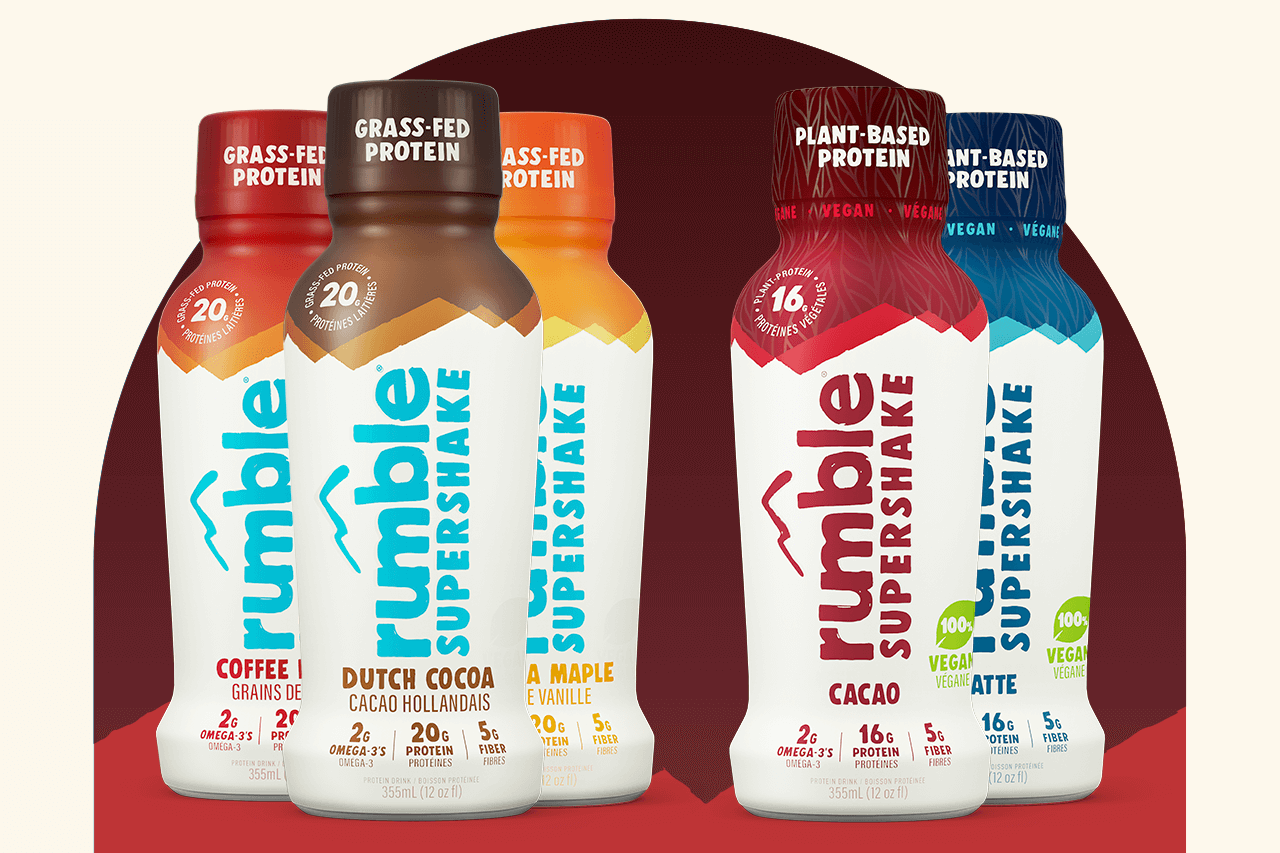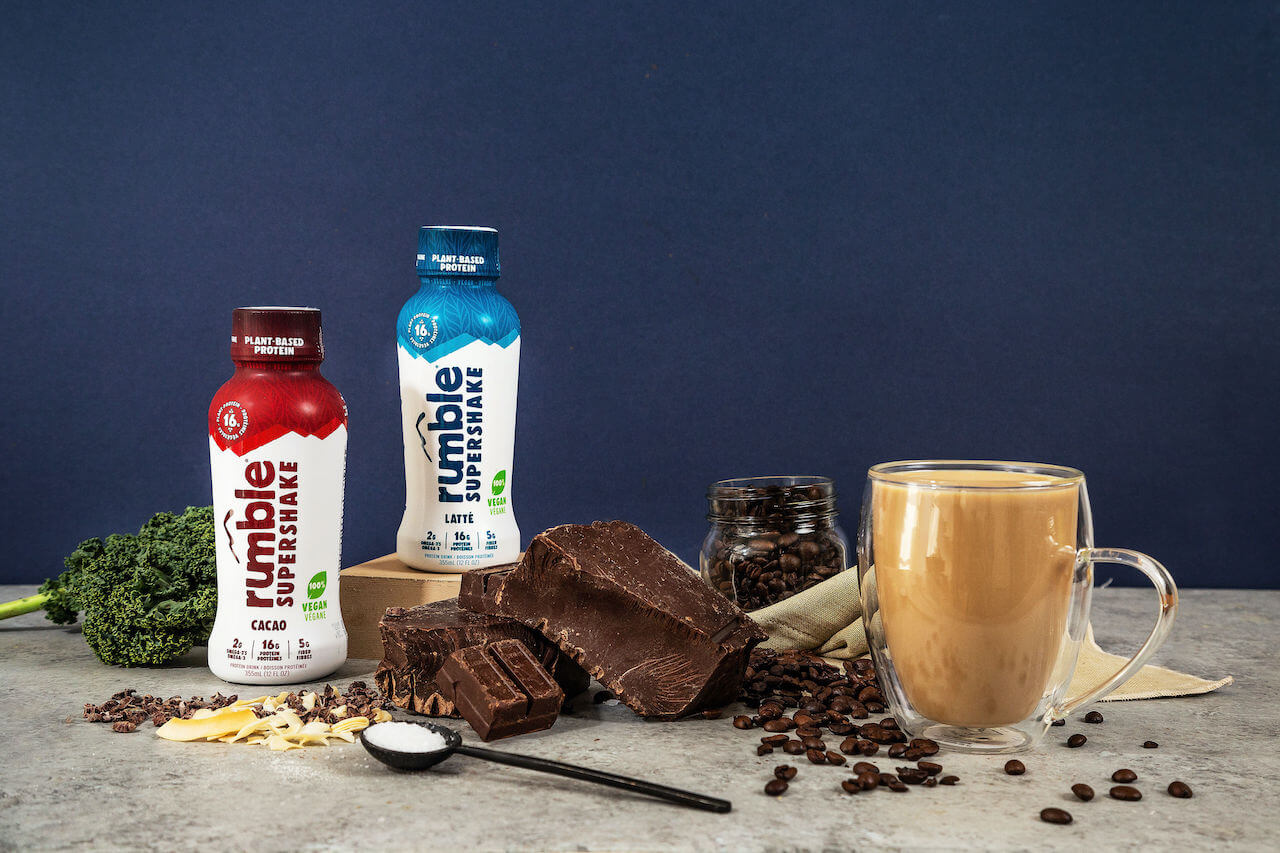Rumble Now Has Grass-Fed Protein! Here's Why.

It’s no coincidence that the most environmentally-friendly and natural ingredients also happen to be the most healthy, nutritious, and tasty. Whole food is good food, in more ways than one. This is true for the Fairtrade organic cocoa and coffee we use in Rumble, and for all the other natural ingredients that we pack into every carton.
When we had the opportunity to revisit our Rumble recipes last year, we knew we wanted to stay true to our vision of the healthiest, tastiest shake out there by upgrading to grass-fed protein. Previously, Rumble was made with dairy protein sourced from dairy co-operatives, but we wanted to do even better. Thankfully, due to increasing demand, grass-fed protein is now more available on the global market than it was when we first created Rumble. This means we could introduce grass-fed protein without increasing prices. A win-win!
After a lengthy search, we found an amazing, grass-fed dairy partner in New Zealand. Why do we have to go all the way to New Zealand for awesome grass-fed protein? New Zealand is one of the few countries where cows can graze on grass year-round, because of the abundant sunshine and optimal pasture conditions. Our partner’s cows spend 90% of their time on the pasture, munching tasty grass, and enjoying the fresh air with all of their happy cow friends. Happy cows make for a happy planet, and a happy you!
Better for the Cows
It’s kind of a no-brainer: raising cows in fields outdoors creates a better life for the cows than more industrial dairy farming, which is geared towards maximizing milk production. On industrial dairy farms, cows are often kept indoors in small spaces, tethered to their stalls. Because they have reduced or minimal access to the outside (or the ‘outside’ is really just a manure pen), these cows are fed processed corn and soy pellets in troughs. They’re also given extra antibiotics to account for the risk of disease when living in close quarters (and to speed up their growth). Not awesome.
Grass-fed cows, on the other hand, eat a natural diet of grass and other pasture plants. These cows graze year-round and are free to move about with soft earth under their hooves instead of concrete. They’re herded to a dairy shed when it’s time for milking, but otherwise spend the rest of the time on the pasture, in the fresh air. It’s a much more ‘naturally awesome’ life.
In addition to pasture grazing, our New Zealand partner rests their cows in the winter. They found that the nutritional quality of the milk wasn’t as good at that time of year because of lower grass growth, so they don’t require their cows to maintain a high level of milk production year-round. Sounds like grass-fed dairy cows get a vacation too!

Better for the Planet
Grass-fed dairy farming is not only great for the cows, it’s better for the planet. Because 85% of their food comes from the pasture (with the remainder made up of natural feed supplements in the winter, when grass growth is at its lowest), our grass-fed dairy cows are free of GMO cow feed. Grass-fed farmers also typically employ cyclical farming techniques, where they herd cows to graze on rotating plots of land. This allows the soil to rest and the pasture to regenerate in between feedings, which increases the amount of carbon absorbed by the soil.
Better for You
It should be no surprise that all of these better conditions make for more nutritious milk. Cows that spend more time in the sun absorb lots of Vitamin D, which ends up in their milk. Grass-fed protein also contains 2-3 times more conjugated linoleic acid (CLA), a polyunsaturated fatty acid, that helps to regulate immune function, promote cardiovascular health, and support hormonal balance.
Another nutrient more plentiful in grass-fed protein than regular milk protein is beta-carotene. Beta-carotene is a building block of vitamin A, which is essential for growth, the prevention of infection, retina function, and skin health.
Aside from nutrients, grass-fed cows require far fewer antibiotics, so there’s less of a risk of antibiotic resistance (which means fewer ‘super-bugs’ that can harm the environment and humans).
We initially created Rumble with dairy protein, because it’s nutritious and didn’t require us to compromise on taste. But grass-fed protein is a huge upgrade - for the cows, for the planet, and for our health.


